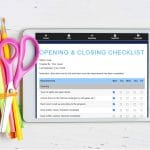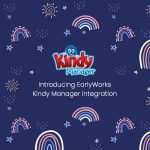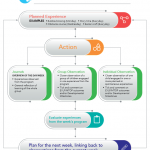How can EarlyWorks support inclusive practice?
It is likely that most early childhood education and care services will have children and families with additional needs. These needs might be temporary or ongoing. They may arise from a disability, behavioural disorder, communication or learning delay, or perhaps from living in vulnerable circumstances. Cultural, linguistic or family background may also impact upon the needs of children in our care.
So how do we ensure learning outcomes are achieved by all children at our service, including those children with additional needs? According to Angela Owens (in NQS PLP e-Newsletter No38, 2012) if we want to serve the needs of all children, we need to engage in inclusive practice, and this “occurs when educators make thoughtful and informed curriculum decisions and work in partnership with families and other professionals.” This notion of inclusive practice and partnerships is also highlighted in the EYLF under ‘Learning Environments’. According to the EYLF, inclusive learning environments “cater for different learning capacities and learning styles and invite children and families to contribute ideas, interests and questions”.
The common theme here seems to be partnerships and communication. The reality is that we’re often brilliant at having initial conversations and meetings with families and support professionals, and while we aim to keep the conversations going, this is often difficult. Busy work schedules can make it difficult for parents, already under extra pressure, to make time for ongoing face to face meetings.
Using EarlyWorks, educators can regularly engage with families, and allied professionals by providing families and those directly associated with the child’s learning and care with a family login. Then information and ideas can be shared, questions can be asked, and valuable conversations can be had. These conversations and sharing of observations, should help us to be responsive to the interests and abilities of all children, particularly those with additional needs.
According to Angela Owens, we should be basing our curriculum decisions on our knowledge of each child’s strengths, needs, interests and abilities. This knowledge comes from regular engagement with all stakeholders Using EarlyWorks this regular engagement can happen from any device, at anytime, anywhere, ensuring that all children, including those with additional needs, are challenged and supported in their learning.







